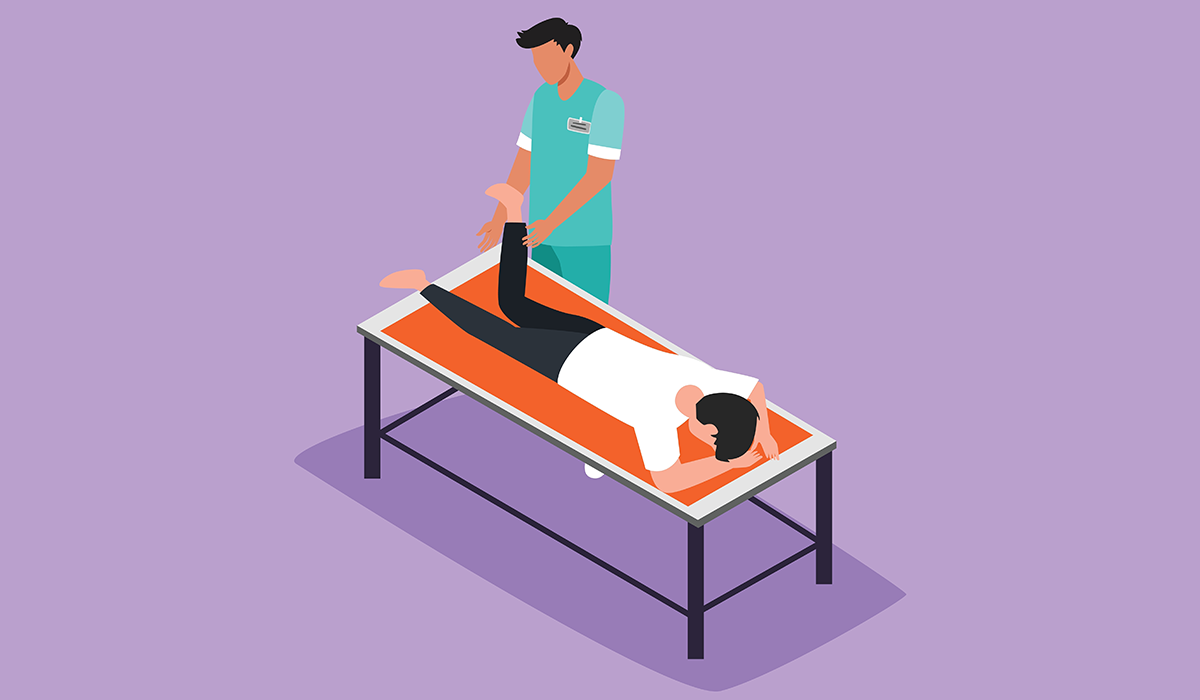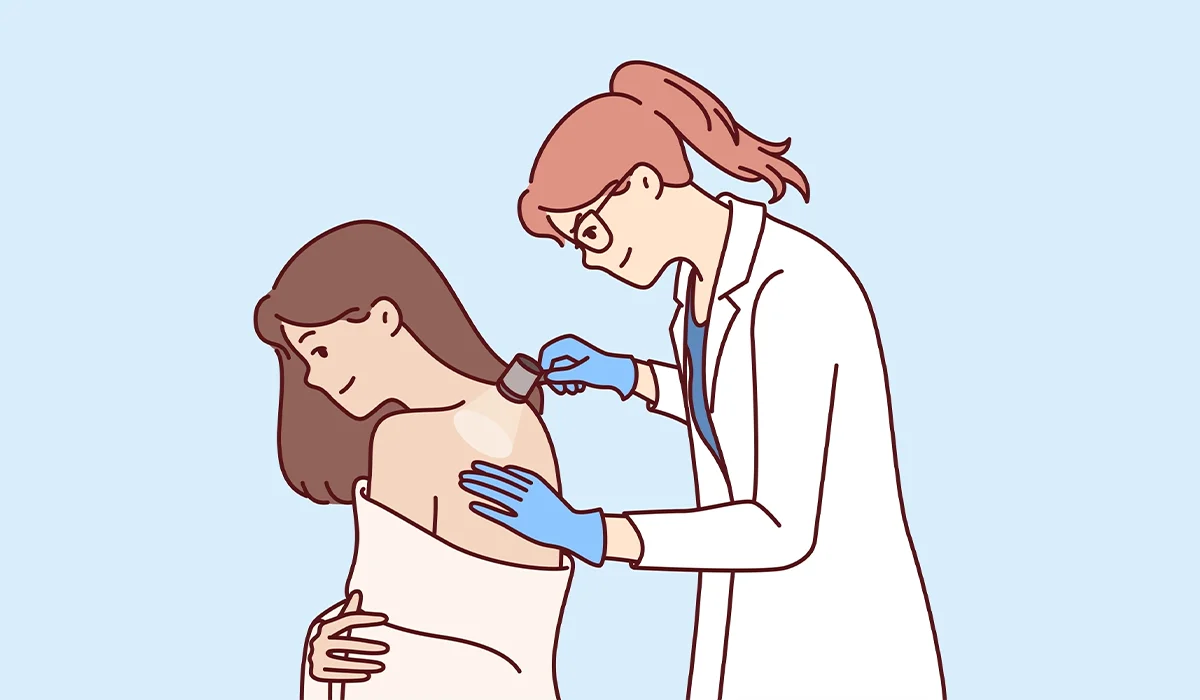Additionally, nurses can:
- Independently make diagnoses
- Provide referrals for diagnostic tests
- Offer therapy recommendations
- Issue prescriptions for certain medications and medical product orders

What Are The Duties Of A Nurse?
A nurse’s duties include:
- Perform their profession with due diligence, by the principles of professional ethics, respect for the patient’s rights, care for their safety, and based on current medical knowledge
- Assist in every case where a delay could cause a sudden health hazard
- Carry out medical orders recorded in medical documentation
- Inform the patient about their rights
- Inform the patient (or their representative or a person indicated by the patient) about their health condition, to the extent necessary to provide nursing care
- Keep information about the patient confidential
- Maintain and make medical documentation available by their competencies and authorizations
A nurse must comply with the code of professional ethics for nurses. They may be held professionally liable if, for example, they violate the obligation to:
- Provide medical assistance
- Respect the patient’s rights
- Maintain medical documentation
Who Can Become A Nurse?
A person who becomes a nurse is:
- A certificate or diploma of completion of a nursing school
- The right to practice the profession, granted by the district chamber of nurses and midwives
- Full legal capacity
- An appropriate state of health allows them to practice the profession
- An impeccable ethical attitude
Specialization
Choosing a specific specialization after completing general education applies to doctors and nurses. Specialization is not necessary, but as one’s qualifications increase, nurses can expect a salary increase.
The most significant nursing specializations are:
- Neonatal Nursing
- Pediatric Nursing
- Geriatric Nursing
- Surgical Nursing
- Anaesthesiology and intensive care nursing
- Oncology Nursing
- Emergency Nursing
These represent just a few of the fields you can explore. If you’re unsure about which path to choose, remember that during your higher education, you’ll have the opportunity to familiarize yourself with all of them. So, you can delay deciding between later. In addition, you will have many practical classes that will show you what a nurse of various specializations does daily. Checking this from the inside will certainly make your future choice easier.
The Characteristics
Nursing students should demonstrate many desirable personality traits to effectively perform their duties in patient care and work in a dynamic healthcare environment. Here are some important personality traits that are especially important in nursing students.
Empathy
Empathy is the ability to recognize and empathize with other people’s emotions, to put yourself in another person’s shoes and see a given situation from their point of view. An empathetic person is aware of what other people are feeling at a given moment, and thanks to this, they can react appropriately to the situation.
Patience
Nursing often requires performing precise tasks and working with patients in various health states. Patience is important to cope with a variety of situations effectively.
Communication
Communicating clearly and effectively with patients and the healthcare team is essential. Good communication improves the quality of care, minimizes the risk of errors, and consequently increases job satisfaction.
Responsibility
Nurses are often responsible for necessary aspects of patient care. This responsibility includes meticulously performing duties and making decisions in difficult situations.

Organization
Work in the medical environment can be intense and requires meticulous planning and time organization. Organized students can more easily cope with responsibilities and complicated situations.
Discretion
Nurses often have access to confidential patient information. It is significant to maintain discretion and respect patient privacy.
Interpersonal Skills
Building positive relationships with patients, families, and other members of the medical team is crucial to providing effective care.
Stress Management
Healthcare work can be emotionally and physically taxing. Nursing students should be able to cope with stress and remain composed in difficult situations, a skill that proves invaluable throughout their careers.
Desire To Learn And Improve
The dynamic nature of the healthcare field demands that nurses continuously expand their knowledge and enhance their skills. The eagerness to learn and grow is a crucial trait that can also lead to higher salaries for nursing staff.
Is It For You?
It is one of the professions of so-called social trust, in which the mission of helping people and caring for their well-being plays a huge role. However, it must be admitted that this is a difficult job, requiring a specific personality type and high resilience—both mental and physical.
Prospective nursing students may benefit from exploring volunteer opportunities to gauge their suitability for this challenging yet rewarding career. While nursing involves confronting suffering, it also encompasses the gratification of witnessing patients recover. It should be acknowledged that this profession requires exceptional fortitude, resonating with the notion that “Not all superheroes wear capes,” as nurses often embody this sentiment through their dedicated service.
Where Does A Nurse Work?
We will encounter a nurse in the following:
- A hospital – among others, they prepare and administers oral, intravenous, and intramuscular medications, collect material for laboratory tests, perform basic tests (e.g., ECG, temperature, and sugar level measurement)
- Primary health care and specialist clinics – among others collect material for testing, perform vaccinations, give injections, dress wounds, perform basic tests (e.g., ECG, body temperature, blood pressure, and body weight), keep records
- Collection point – collects material for ordered laboratory tests, e.g., blood
- School health prevention office – among others provides emergency care in emergencies, performs screening tests (e.g., vision and hearing tests, body weight, height, and blood pressure measurements), supports students with disabilities, educates about a healthy lifestyle and mental health hygiene
- Social welfare home, nursing home, or hospice – assists seriously ill and dying people, in addition to typical tasks also feeds and washes patients, cares for bedsores
- Patient’s home – in some cases provides services within the framework of primary health care or long-term nursing care

Is It Worth Being A Nurse?
Becoming a nurse can be beneficial despite the relentless character of the occupation. For those with a fondness for healthcare and empathy for others, the career proposes a fulfilling job. Nursing is a practical career option due to the opportunity to influence individuals’ lives, the variety of specialties available, and the stability of the industry. It continually reinforces the feeling of achievement and meaning because of the challenges that come with it.
Nursing is undoubtedly worthwhile for people who discover fulfillment in providing for others and making a difference in their well-being. These are just a few reasons why it is worth pursuing such an important profession.
Nurses Save Lives
A nurse provides independent help in health promotion, disease prevention, and restoration. They cooperate with patients, their families, and social groups to deliver assistance and improve the quality and effectiveness of nursing. This profession significantly impacts patients’ health and well-being by planning and providing care, identifying nursing problems and health needs, and offering emotional support.
As part of the healthcare team, nurses provide preventive, diagnostic, therapeutic, rehabilitation, and medical rescue services. Most importantly, they have the opportunity to make positive changes in the lives of others, which is undeniably uplifting and undoubtedly the driving force behind choosing this profession.
Job Stability In Nursing
Nurses are needed and sought after in the labor market. In fact, irreplaceable. Since this profession is perceived as one of the most important, without which health care will not be able to function, entering the profession, you gain a guarantee that it will not disappear, both from the practical and academic path.
Nurses Have The Opportunity To Learn And Develop
Contrary to appearances, this profession leaves many opportunities for later work. While still studying, you can decide to specialize in the field of nursing that applies to health care.
The work of a nurse involves not only everyday patient care but also the opportunity to participate in scientific research and medical innovations.
Challenges
No one needs to be convinced of how challenging the profession is. This professional group faces daily challenges that affect their work and professional life. That is because nurses are the closest to the patient. Although the difficulties are numerous, the following four are on the podium of professional problems.
Insufficient Staff
One of the challenges that nurses face is staff shortages. The lack of staff affects the quality of care and patient safety and increases the risk of medical errors, which unfortunately does not help with employee motivation. It is necessary to take action to improve working conditions to encourage new people to take up employment while retaining experienced and qualified medical personnel.
Heavy Workload
Nurses often work several jobs and under significant time pressure. They have to cope with staff shortages and a large number of patients. Working in a therapeutic team is also a major challenge – especially between doctors and nurses, which is the basis for providing high-quality medical services. It should also be remembered that when providing comprehensive care, one must also demonstrate far-reaching empathy. And this is not easy because, with staff shortages, the responsibilities of several people usually fall on one person, which leads to fatigue and lack of job satisfaction.
Employers and decision-makers need to be aware of this challenge and take action to improve working conditions. This will also translate into patient safety and a guarantee of medical services provided at the highest level.
Stress And Emotional Burden
The work of a nurse is often associated with stressful and emotionally challenging situations. Children and women beaten and physically and mentally injured, dying patients, or people with mental disorders who do not want to cooperate are just some of the examples. Suffering patients, death, difficult decisions, and conflicts are everyday life. However, not every healthcare facility provides access to psychological support. Therapy or support groups to cope with stress and emotional burdens are also not popular.
Underestimation And Lack Of Recognition
Nurses often experience a lack of respect and recognition for their work, both from patients and their families. Even though they are key therapeutic team members, their contributions and work are underestimated. Many people do not realize that the role of a nurse is not limited to giving an injection or taking blood. The employees of this professional group assist with instrumentation during the surgical procedure, connecting the equipment, catheters, etc.
This work requires high qualifications and is often invisible; the actions are repeated many times, and the purpose of the complexity of this work is hidden from the eyes of the patient and their families. Even though the professional group of nurses and midwives is the largest among medical professionals, they are usually treated anonymously.
To change this, it is necessary to educate about nurses’ roles in the health care system, demonstrate their qualifications and competencies, and articulate professional independence consisting of providing preventive, diagnostic, therapeutic, rehabilitation, and rescue services. An employee with such qualifications deserves recognition from both employers and society.
Sources
- Nursing careers. NHS.
https://www.healthcareers.nhs.uk/we-are-the-nhs/nursing-careers - Types of nursing. NHS.
https://www.healthcareers.nhs.uk/explore-roles/nursing/roles-nursing - How to become a nurse. NHS.
https://www.healthcareers.nhs.uk/explore-roles/nursing/how-become-nurse - The Role of Nurses in Improving Health Care Access and Quality. NIH.
https://www.ncbi.nlm.nih.gov/books/NBK573910/ - Nurses’ Personality Traits and Perceived Work Environments During Public Health Emergencies: Implications for Nursing Workforce Planning. NIH.
https://www.ncbi.nlm.nih.gov/pmc/articles/PMC11088948/ - Top 12 benefits of working as a nurse in the UK. NursesGroup.
https://nursesgroup.co.uk/nurse-benefits-uk - Nursing crisis: Challenges and opportunities for our profession after COVID‐19. NIH.
https://www.ncbi.nlm.nih.gov/pmc/articles/PMC9349996/

